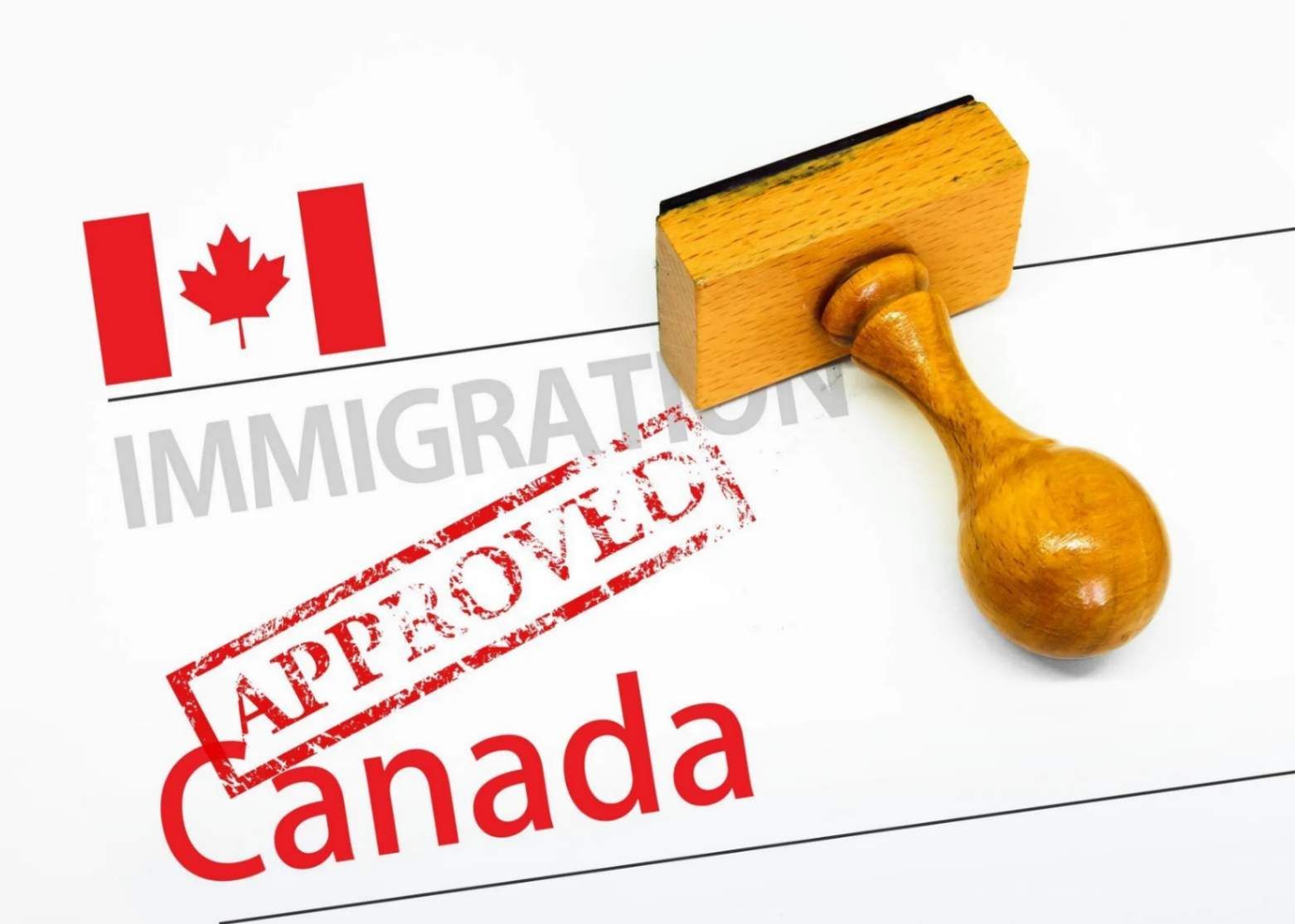IMM 5406 Additional Family Info Guide
The form IMM5406 Additional Family Info is a necessary component of many Canadian Immigration application packages, including spousal sponsorship, Provincial Nominee Permanent Residence applications, Agri-Food pilot, Rural and Northern Immigration PR applications, Humanitarian and Compassionate applications and more.
As a mandatory component of an application for Permanent Residence, the form must be completed perfectly in order for your application to be accepted for processing. It is our experience that many applicants are often unsure of who needs to be included on the form and frequently do not provide some of the essential information.

What is the IMM 5406 Family Information Form?
The IMM5406 Additional family information form is one of the application forms contained in every application package for Permanent Residence for Canada. The purpose of this form is to provide IRCC with information about your family members - your spouse, parents, children and siblings. IRCC wants this information for two reasons: 1) to ensure that you are not a security threat based on your connections to individuals who pose a danger to Canada and 2) to have a record of your family members on file for any future immigration applications you may file that depend on a family relationship.
How to complete the IMM 5406 Additional Family Info form?
Canada is using an online application system for permanent residence applications. The IMM 5406 online form is a mandatory online form that is included within your online Permanent Residence portal when you set up your application for permanent residence with IRCC. This is commonly referred to as the family information form, and you should also see the requirement for this form included on your document checklist.
Who needs to complete the IMM 5406 Additional Family Info form?
The primary applicant needs to complete the IMM5406 Family Information form, along with any immediate family members over age 18 who are not already a Canadian citizen or Permanent Resident. This means that the spouse or common law partner, and dependent children (age 18-21) of the principal applicant need to complete their own IMM5406 if they are not Canadian or Permanent Resident already. Note that dependent children are considered to be immediate family members only until age 21, and only if they are single. Minor children who are less than age 18 do not need to complete their own IMM 5406; however, children between the ages of 18 to 21, who are single, do need to complete their own form. Let’s put this into bullet form for greater clarity.
Who needs to complete their own IMM 5406:
- Principal applicant
- Spouse or common law partner of principal applicant (if not Canadian or PR)
- All single children of principal applicant (if not Canadian or PR) ages 18-21, biological or adopted
Who should not complete their own IMM 5406:
- Spouse or common law partner of principal applicant if already Canadian or Permanent Residents
- Ex spouse or common law partner of principal applicant
- Children of principal applicant who are less than age 18
- Children of principal applicant who are married or common law
- Children of principal applicant who are 22 years of age or older
- Children of principal applicant who are already Canadian citizens or Permanent Residents
If you have created your online profile correctly when setting up your online application for Permanent Residence, the system should have generated IMM 5406 forms for family members according to the above guidelines.
The sponsor in a family sponsorship application does not need to complete their own IMM 5406 as the sponsor must already be a Canadian Citizen or a Permanent Resident in order to act as the sponsor.
Who to include on the IMM 5406 Additional Family Info form?
The IMM 5406 Family Information form asks for details of your spouse or common law partner, your parents, your children and your siblings. When providing this information, you DO need to include details on ALL of these family members, even those who are already Canadian or Permanent Residents.
Be careful not to mix up who needs to complete their own form with who you need to list on your form. Although you need to list a lot of people on your form, very few of them will actually need to complete their own form.
Further note that Canada considers you to have a common law partner if you have lived together in an exclusive relationship for a period of 12 months or longer and you have combined your affairs in much the same was as a married couple. Many countries around the world do not provide formal recognition of common law relationship, and your home country may consider your status to be single, even though Canada would consider your status to be common law. Ensure that you complete the IMM5406 Family Information form using Canada’s guidelines – and be sure to include your common law partner if you have been living together for the 12 month duration.
Common mistakes on the IMM 5406 Family Information form.
Your entire PR application will be returned to you as incomplete if you do not complete the IMM 5406 Family Information form correctly, therefore it’s very important that you carefully consider all of the information required. Some of the common mistakes that we see self-represented applicants make on their IMM 5406 are as follows:
Leaving off children who are Canadian or PR –All of your children must be listed on this form, including biological children, step-children, adopted children, deceased children and missing children.
Leaving off over age children –although your children who are over the age of 21 do not need to complete their own form, and will not be receiving a visa as part of your application, you must still list them as your children on your own form.
Leaving off step-children – your spouse’s children are considered your step-children, and they must be listed on your IMM 5406 Additional Family Info form. Sometimes family situations are a bit complicated, such as when you married later in life and your spouse’s children were grown already when you married – you may not be considered a step-parent for practical reasons in that situation. Our advice is to over declare, and still provide the information as if your spouse’s children are your step-children. IRCC can always disregard extra information if they deem that it’s not relevant, but if you fail to declare the information in the first place, you can run into problems with having your file returned as incomplete or in extreme situations, having to defend yourself against a misrepresentation allegation.
Leaving off deceased relatives–details for all of the listed categories of family members must be included, even those who are deceased, missing or who you are no longer in contact with. If you don’t know all of the requested details, such as current address or email address, provide the details that you do know and indicate ‘unknown” for the details that you do not know. A deceased relative no longer has an address, therefore you must enter in the date of death and location of death (city, country) into the address field. We recommend using the following format:
Date of death: ****/**/**
Place of death: city, country
Providing incomplete addresses –The address that you include for each family member must include enough proper information that a courier package could be delivered to your family member using those details. This includes the exact location of the residence on the street, the street name, city, country and postal code, if postal codes are in use in the country where your family member lives. IRCC will return your application if the address information is incomplete, so pay close attention here. If you are no longer in contact with your relative and do not know their address information, it is fine to put “address unknown – no contact”.
Not including names in native language – Immigration Canada requires that you include the names of each family member spelled in English and in their native language, if that spelling is different than the English spelling. This requirement can sometimes be difficult to fulfill, due to character limits in the online name field. You can always include the names in native language in a separate document and upload it as an attachment in the support docs of the application, or you can also include it in the address section of the form. Just be certain to specify that it is the name in native language, so that it is not assumed to be a part of the person’s address.
Leaving fields blank–ensure that you complete each and every field that the form provides. If one of your relatives does not have an email address, indicate ‘not applicable’ in that section of the form. Likewise, if you do not have any children or siblings, enter ‘not applicable’ in the first field for each of those sections. Leaving fields blank indicates to IRCC that you have not completed the form properly and could result in your application being returned as incomplete.
Lack of details about current occupation- when asked about current occupation, ensure that you provide enough specific information that Immigration Canada will have a good idea what your non accompanying family members actually do on a day to day basis. IRCC needs to be satisfied that your family members are not in prison or working in illegal activities. Terms like working, self-employed, business person, manager or retired do not provide IRCC with enough insight into the activity of your family member. Retail manager, Business owner - retail store, or retired teacher communicate the activities of your family member in a much more complete manner.
Properly completing forms is the simplest part of an application for Permanent Residence to Canada, but as you can see, even the simplest part of the application is more complex than it seems, and crucial to the success of your Canadian immigration plans. The Way Immigration Alberta immigration consultant is available to assist you, either on a consultation basis where we answer your questions, or on a representation basis where we simply take charge of your application for you, to ensure that you receive the approval you need without the stress associated with trying to figure out the application process on your own. Contact our immigration consultant Calgary office today and feel better about your application in minutes.
Frances Wipf, RCIC, is recognized globally as an expert in Canadian immigration matters. She is licensed by the CICC to provide legal representation and strategic immigration insights. In practice since 2008, Fran has successfully guided thousands of clients to achieve their Canadian immigration dreams through a combination of realistic assessment, technical excellence, and honest advice.











